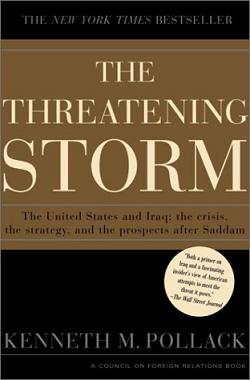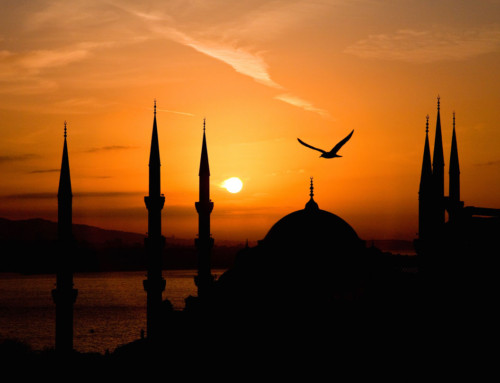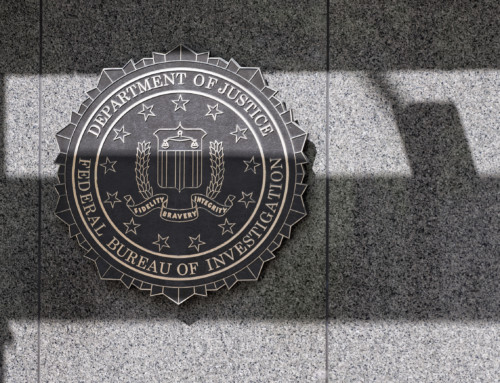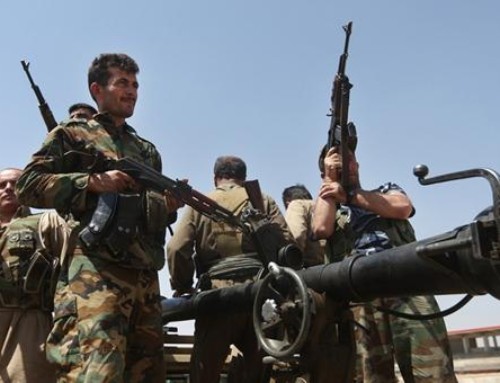The gravest danger this nation faces is the conjunction of terrorism, Rogue states, and weapons of mass destruction.
In reading a recent prescription for Democrat duplicity, by USA Today’s DeWayne Wickham titled, If Democrats lay low on war, Bush will defeat himself, I found myself wondering what part of President Bush’s new security policy, the corner-stone of which is excerpted above, the antiwar crowd doesn’t understand or agree with? It is infuriating and disheartening for those of us who can understand the danger posed by a nuclear-armed Iraq as well as the debt we owe the Iraqi people, to see supposedly honorable members of our own government and their innumerable allied press pundits, just like Wickham, make common cause with elements of the world community and enemies within who wish us ill or our outright destruction.
Wickham’s insightful counsel to the Democrats is to lay low (in the proverbial grass… just expanding his metaphor) so that they can “harp” on bad economic news and blame Bush for the cost of liberating Iraq. “…by the time of the 2004 presidential campaign gets underway, thousands of U.S. troops will be in Iraq.” he writes. “The price tag for both the war and the nation building…will deepen the federal deficit and push the United States closer to a recession.”
 In The Threatening Storm, Ken Pollack, the man in charge of U.S./Iraq policy at the NSC in both the Clinton and Bush administrations, writes in his definitive endorsement of the liberation of Iraq, that this is a grave decision for the U.S. very much like that which Britain and France faced regarding Hitler in 1938. “Despite the fact that the balance of power lay in their favor, London and Paris decided against a war in 1938 because of the potential costs…even one that they expected to be victorious.” So they opted for appeasement figuring that he’d be satisfied with just taking over the Sudetenland. Instead, as Pollack writes, “Hitler was able to start the war on his terms in 1939 with the incalculable costs of 10s of millions dead and hundreds of cities in ashes.”
In The Threatening Storm, Ken Pollack, the man in charge of U.S./Iraq policy at the NSC in both the Clinton and Bush administrations, writes in his definitive endorsement of the liberation of Iraq, that this is a grave decision for the U.S. very much like that which Britain and France faced regarding Hitler in 1938. “Despite the fact that the balance of power lay in their favor, London and Paris decided against a war in 1938 because of the potential costs…even one that they expected to be victorious.” So they opted for appeasement figuring that he’d be satisfied with just taking over the Sudetenland. Instead, as Pollack writes, “Hitler was able to start the war on his terms in 1939 with the incalculable costs of 10s of millions dead and hundreds of cities in ashes.”
With palpable partisan relish, Wickham contends that Bush is already “beating himself” on lots of fronts, first the U.N. He reports that last week, in that august body, the security council, composed of Syria and China, and staunch allies, France and Germany, dealt him a huge setback “…when just three of the body’s 15 members backed his push for a resolution that would give the U.S. authority to wage war on Iraq.” Incorrect, DeWayne; they dealt themselves a setback in credibility and moved one more step toward the fate of the League of Nations and the dodo bird. The bulk of Americans will not mourn the U.N.’s loss. How on earth have we reached a point where we need Syria’s approval to defend the interests of our allies and our homeland anyway? But the smart money has bets down that the U.N. Security council will come around to our side at the last-minute because, as Bob McBain has rightfully pointed out, job one for any bureaucrat is to keep his or her job.
Once our coalition of 20 plus countries including Britain, Spain and Turkey, countries whose current leaders can grasp mortal danger as it gathers, do liberate Iraq, Wickham and kindred spirit Robert Scheer (see his recent equally disgraceful and capitulatory op-ed, Bush Crusade), both seem eager to provide our adversaries with not just aid and comfort but marketing advice. Wickham writes, “The televised images of U.S. troops pouring into that Muslim country will be a recruitment poster for Osama bin Laden’s terrorist organization…” So very wrong again. Prior to the liberation of Afghanistan, bin Laden had said that he believed that the U.S. and its Western allies were too morally corrupt to even defend themselves. And moreover, he has told interviewers as well as his devout following that his most important indicator of this was our cowardly retreat from the peacekeeping operations gone bad in Somalia. The al Qaeda recruitment poster has already been created, DeWayne. It displays a dead U.S. Marine being dragged through the streets of Mogadishu.
Benefited by his access to massive intelligence gathering, much gained from high-level Iraqi defectors, in Threatening Storm, Ken Pollack is able to describe at great length Sadam Hussein’s deranged lack of deterrability. ‘Saddam’s foreign policy history is littered with bizarre decisions, poor judgment, and catastrophic miscalculations,” he writes. To illustrate Hussein’s homicidal/suicidal nature, Khidhir Hamza, Iraq’s chief weapons scientist who defected to the West, recounts that in August of 1991 with Iraqi troops holding Kuwait and Bush Senior’s Desert Storm about to commence, Hussein ordered him to commence a crash program to produce enough fuel for at least one nuclear device. If Bagdad were about to fall, Hussein would obliterate Tel Aviv, knowing that Israeli nuclear missiles would whistle in to take all of them out. It was a good time for Hamza to defect.
Fortunately, we are nearly confident that Hussein’s crash program to develop nuclear weapons has been interrupted. But optimistic experts feel Iraq will be nuclear in 2008, pessimists, 2004. And what does this mean? Because of his recklessness, penchant for violence, and his so often stated goal of becoming the undisputed leader of the Middle East, he is widely regarded as the most dangerous ruler on the planet to posses and control nuclear weapons. A nuclear confrontation with him so armed seems more likely rather than a remote possibility, with the possible result of millions dead and a world-wide economic depression. And therefore, Pollack postulates, an invasion now is our most conservative option. But even if Hussein could be deterred until his death, his possession of nuclear weapons would mean that we would be giving up our ability to protect the Kurds. Human Rights Watch officially lists Hussein’s Anfal campaign, where he gassed and killed as many as 200,000 Kurds and razed 4,000 villages, as genocide. With us deterred, he could opt to eliminate all Kurdish and Shiite opposition. I can’t recall one Democrat or allied pundit condemning or urging caution with respect to Bill Clinton’s non-U.N. sanctioned war against Slobodan Milosevich’s Serbia. Given what we as a nation are facing and the gravity of the decision that George Bush must ultimately make alone, what Wickham is selling is abject hypocrisy and disgraceful partisanship.
Having missed their chance to preempt Hitler, by May of 1940, British, French and Belgian armies were being, overrun and swallowed up by a German blitzkrieg that swarmed around their main defense works through the Ardennes Forest and into the Low Countries. Suddenly and without warning, on May 26th, Belgium’s King Leopold surrendered his armies, leaving one million allied soldiers in danger of being cut off and with only one escape route remaining at the port of Dunkirk. While the trapped men fought on the ground and the English pilots fought desperately in the skies, one of history’s most patriotic and heroic events took place spontaneously. From scores of English costal villages came thousands of small craft, fisherman, yachtsmen, retired navy men who for nine days, under heavy bombardment went back and forth, taking their brothers-in-arms and their kinsmen off the doomsday beaches. The stuff of epic poetry.
Many serious thinkers from Margaret Thatcher to Charles Krauthammer have now agreed with the President that the single greatest challenge to civilization in the 21st century will be ridding the barbarians of weapons of mass destruction. But as the lead country in this crusade, we might also need to suffer our own Dunkirk. Heroic sacrifice may be required to persevere. It may be too much for us to expect all campaigns to go as well as the Gulf War and Afghanistan. But considering the valorous men and boys who not so long ago sailed across the English Channel those nights in May of 1940, I wonder how those among us can possibly live with themselves who deviously plot advantage from the costs, and unknowable, terrible human losses that may come in this second theater and of that war.





